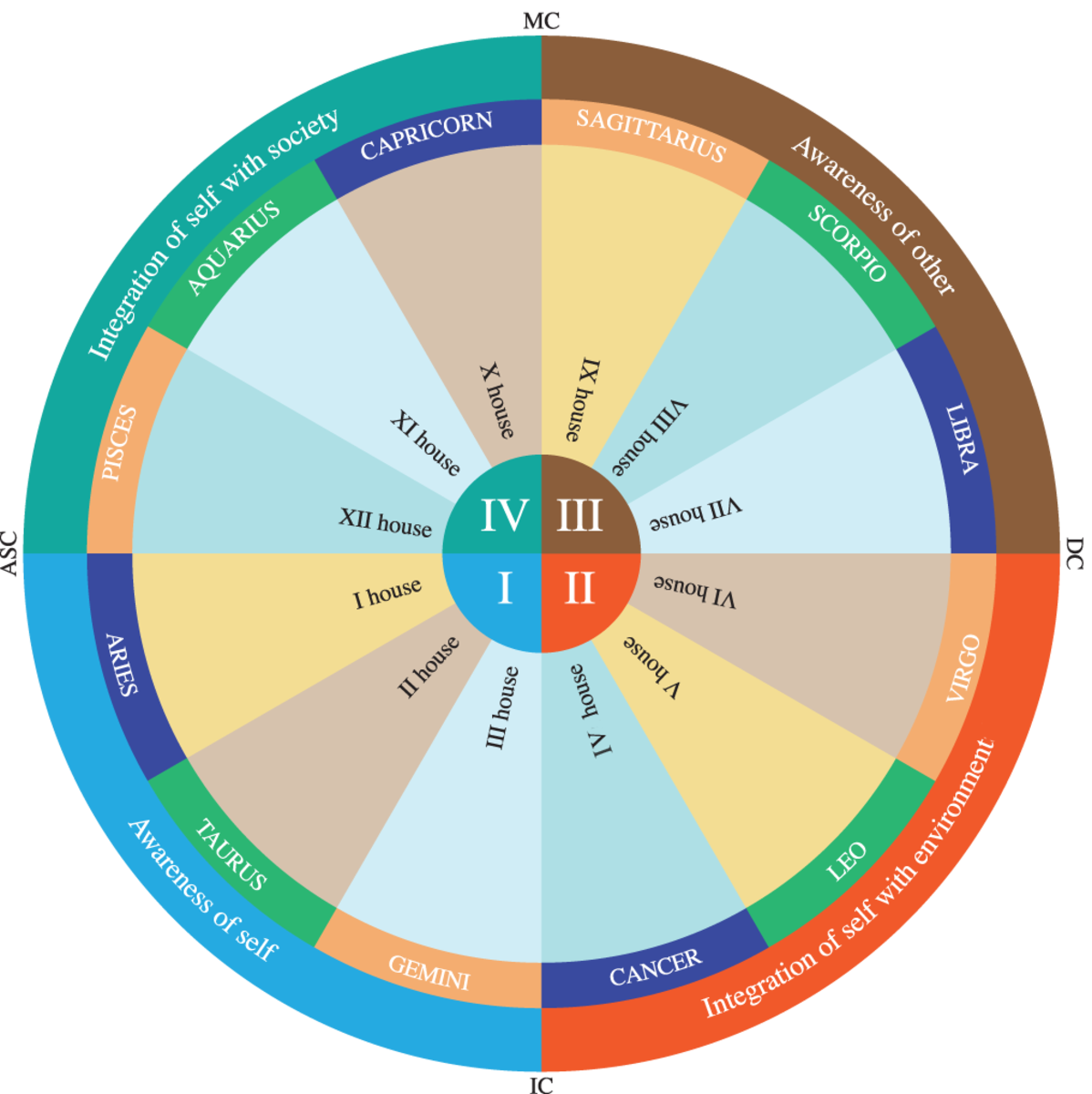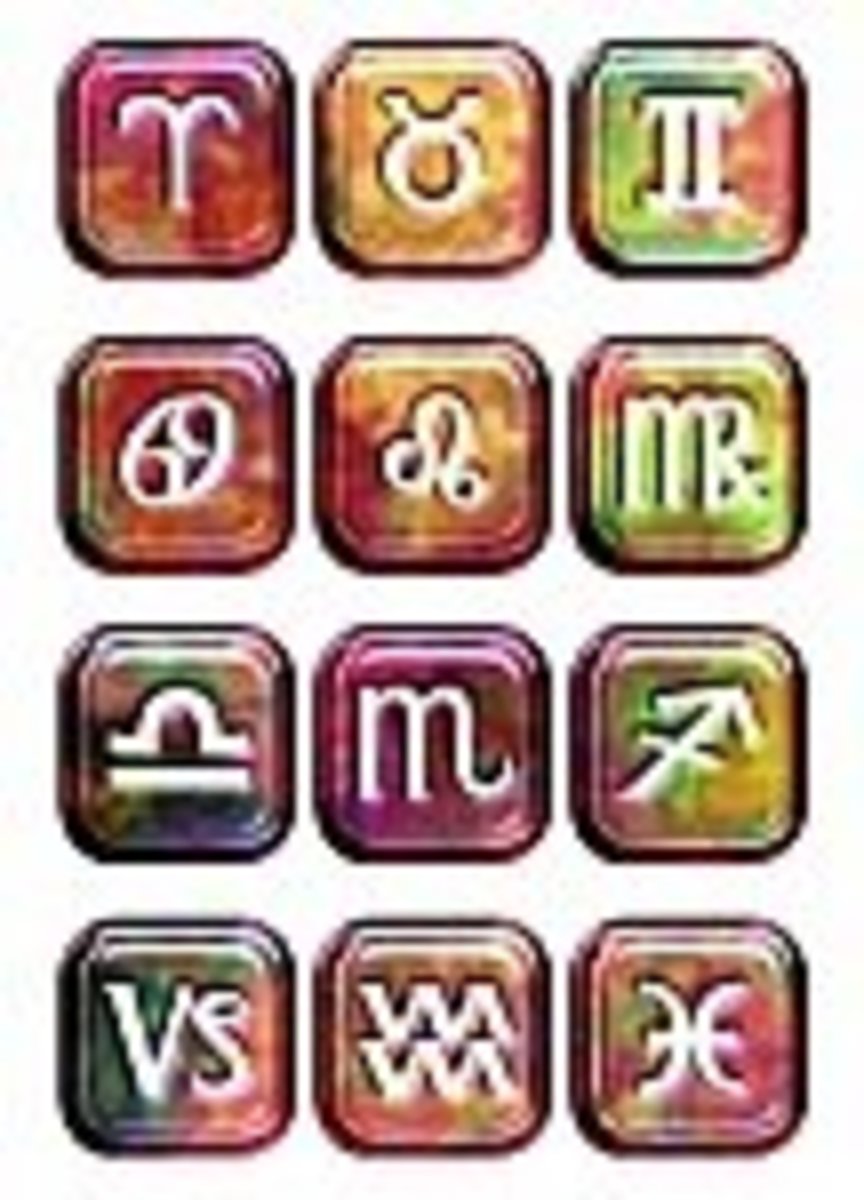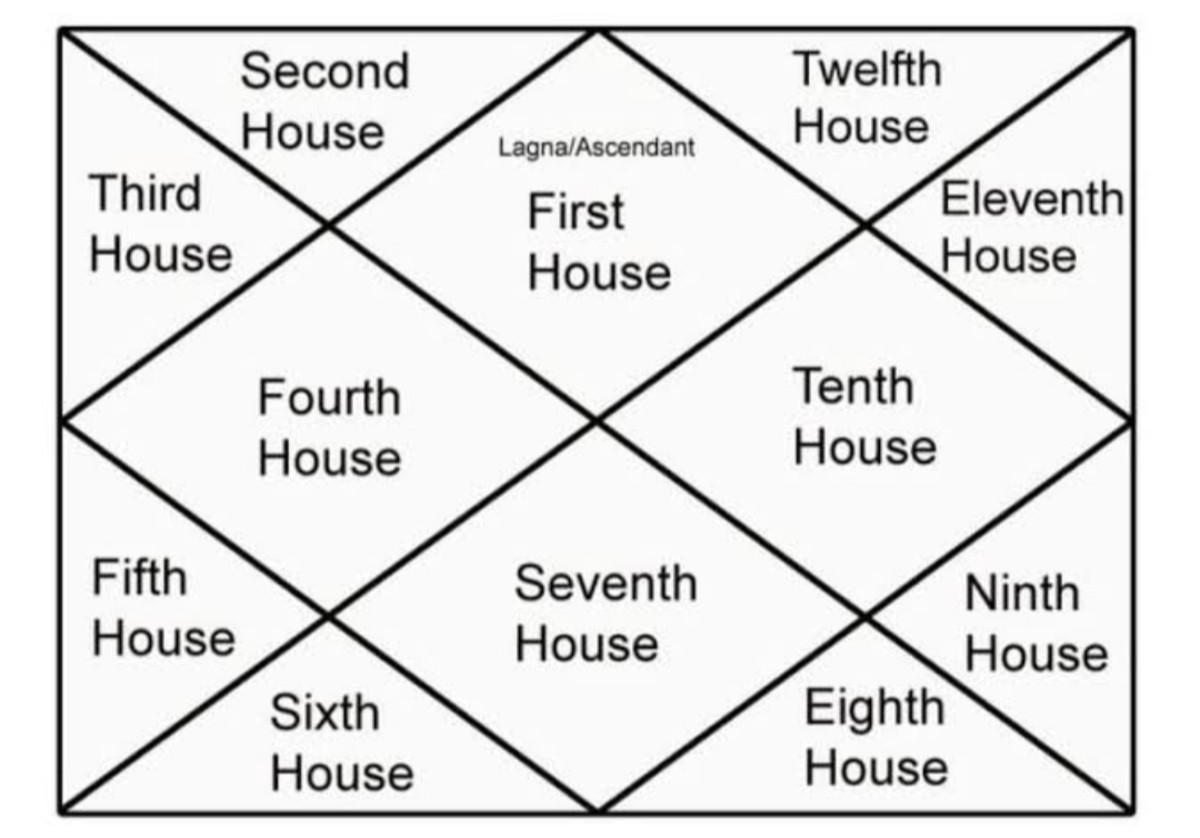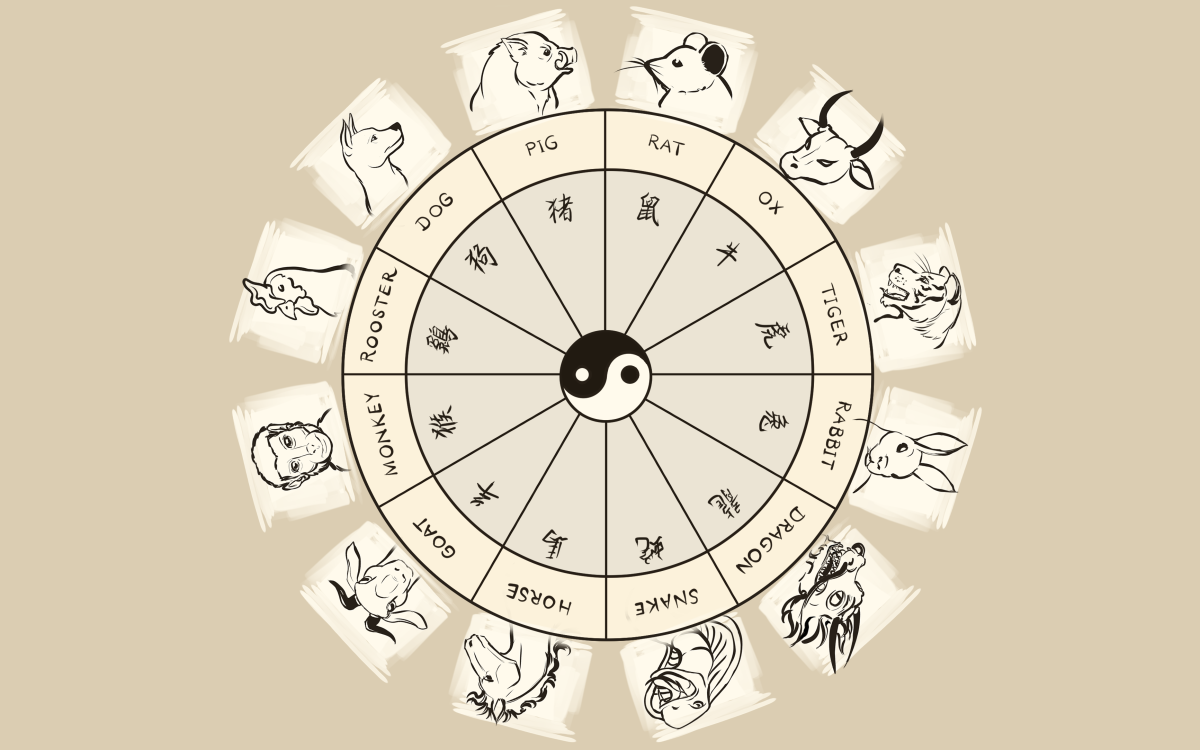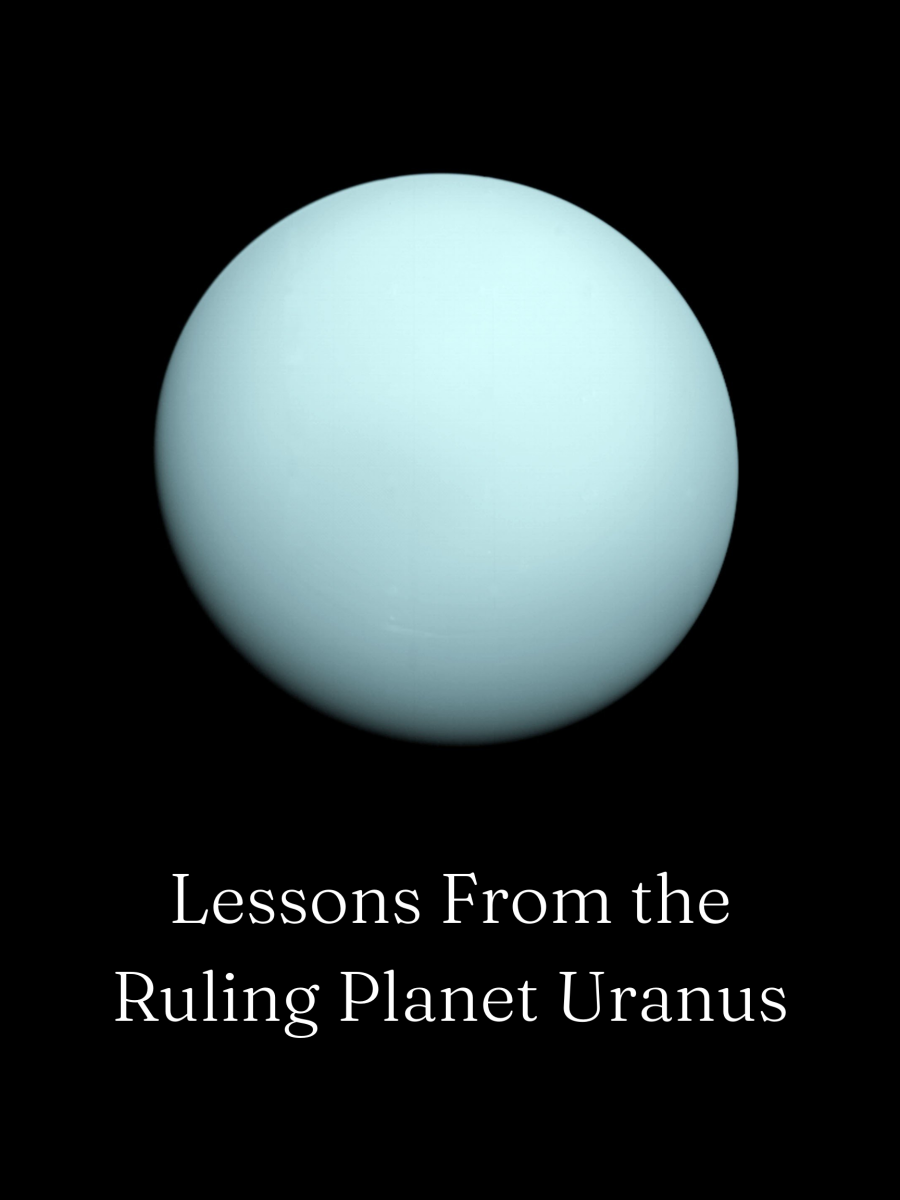Astrology Birth Chart Basics
What Is An Astrological Birth Chart?
An astrological birth chart is basically a picture of the sky at the exact time, on the exact date, and at the exact place of your birth. In other words, it is the exact map of the sky that you would have seen had you looked up at the moment of your birth. That means that no two birth charts are alike just like every person is unique. The positions of the planets, the other elements of your birth chart are like a map of your life. If an astrologer interprets your astrological birth chart, you are referred to as the native, because it is your unique birth chart.
If you have never studied astrology before, or had your birth chart read, you may have heard people say that astrology deals with how the planets influence us. This is not true. The planets do not influence us, they only serve as a road map to help us better understand ourselves and our own lives. Astrologers believe that every action in the heavens has an equal action in our live (as above, so below). In this way, by studying and interpreting the stars, we can better understand our own lives.
What Are The Basic Parts Of A Birth Chart?
The most important elements of a birth chart are the planets and the houses. Each of the planets and the houses correspond to events, personality traits, foods, plants, animals and illnesses. There are correspondences between elements of the birth chart and almost anything you can imagine. In astrology, these correspondences are called rulership. A skilled astrologer is aware of these rulerships and can interpret a birth chart by looking at its elements and making an interpretation based on rulerships.
Besides the planets and the houses, the positions of the planets in relation to one another within a birth chart are important. These relations are known as aspects. Some aspects are known as harmonious, while others are known as disharmonious. Harmonious aspects are ones in which the energies of the planets flow easily. The disharmonious ones are aspects in which the energies of the planets oppose or block each other. Every aspect, whether harmonious or disharmonious contains life lessons for us and therefore are important in the human experience.
Planet Glyphs Seen In A Birth Chart
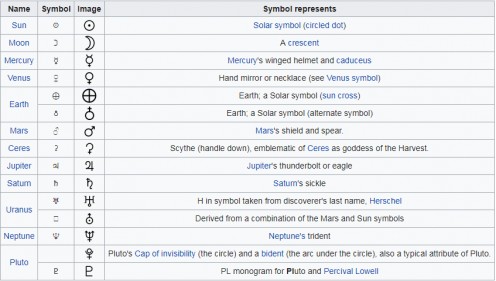
Sign Glyphs Seen In A Birth Chart
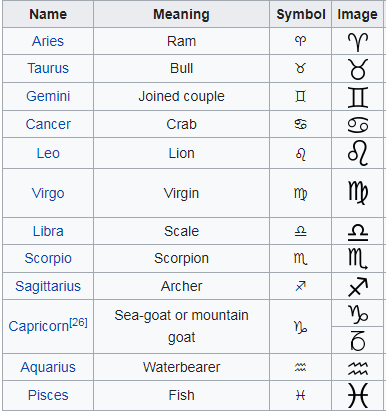
The Rulership Book

Birth Chart Of Abraham Lincoln
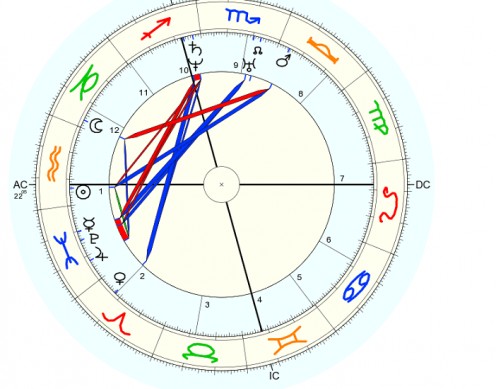
What A Birth Chart Looks Like
The birth chart of Abraham Lincoln is what a typical birth chart looks like in the West. Birth charts in the Vedic tradition, found in India, look very different and rely on some different methods of interpretation.
In the West, astrological birth charts are circular. As you can see in Lincoln`s chart, the wheel is divided into twelve sections, like a pie. Each of these sections represents a house and each house has many rulerships. For example, the seventh house rules marriage and long term relationships and the sixth house rules and health.
To the right of each house is a strange looking sign, or a glyph. There are glyphs, or signs, for each of planets (Sun, Moon, Mars etc) and each of the signs (Aries, Scorpio, Aquarius etc). If a good astrologer were looking at Lincoln`s chart, he or she would consider the most important rulerships of each sign, house and planet, and interpret how this information fits together.
The lines you see connecting each of the planets represent the aspects. They tell the astrologer whether the energies of the planets are working harmoniously or disharmoniously together.
In Lincoln`s chart, we can also see the AC, DC and IC symbols. The IC, or Immum Coeli, symbolizes the hidden parts of our consciousness. These may include influences from our childhood, parents or other family members. The AC is the ascendant, and it`s what people mean when they talk about the rising sign. Aside from the sun sign, the rising sign is the most prominent sign in the chart. It represents the personna the native shows the outside world. The DC in Lincoln`s chart is the descendant. It represents the native`s relationships.
If you have some experience making and interpreting astrological birth charts, you will notice that the MC, or Midheaven is not visible on Lincoln`s chart.In fact, Lincoln`s Midheaven is located in Sagittarius. The MC represents the person`s status in the world, his or her career or public life.
Poll: What Is Your Sign?
What Is Your (sun) Sign?
Further Reading About Your Birth Chart
If you would like to study astrology, the best advice I can offer is to be patient. It can take years to learn about rulerships and develop a good sense for interpreting birth charts.
You can start by having your birth chart done automatically online, or, you can learn more about astrology. I highly recommend astro.com. This company is based in Switzerland and has the most extensive astrology resources I have ever seen in one place.
Do your birth chart for free, subscribe to service to read an accurate daily horoscope based on all your birth data, or purchase astrological interpretations from world renowned astrologers. There are also links to astrology self-study resources that will help teach you how to cast birth charts manually and how to interpret them accurately.
What do you think about astrology? Can it help you learn more about your life, or is it just a pseudo-science? Let me know in the comments below!

